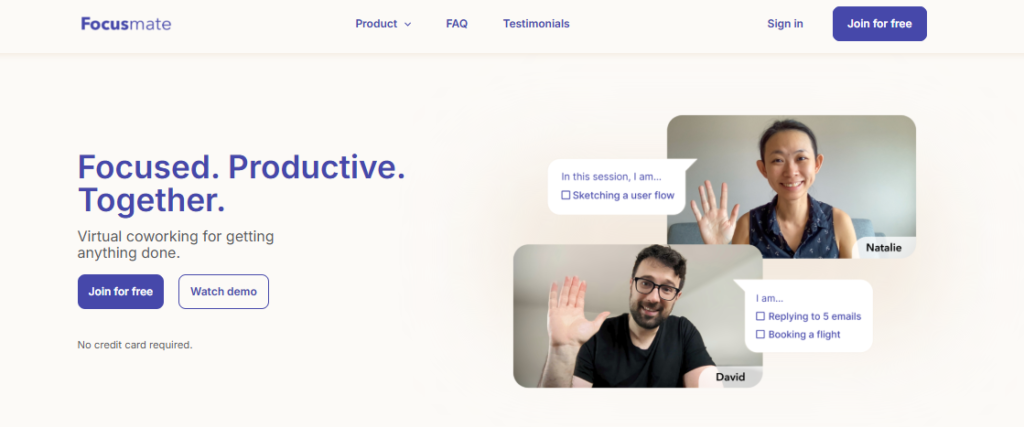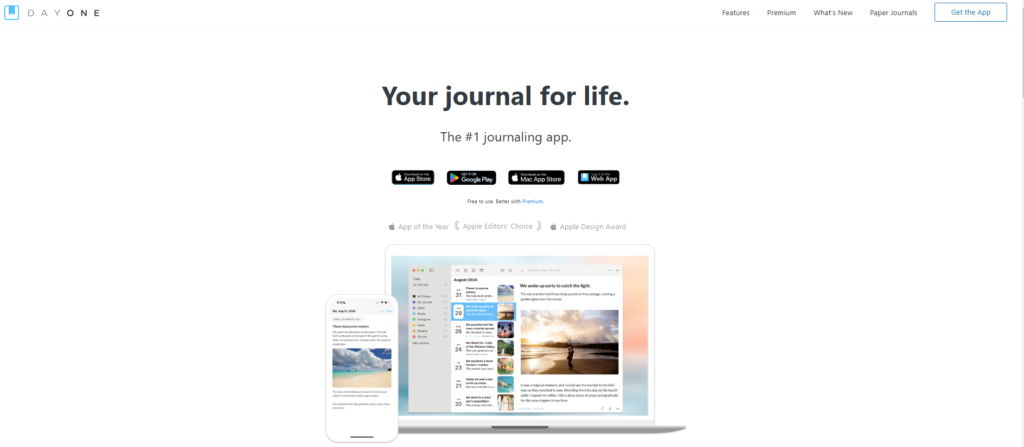For More Free Videos, Subscribe to the Rhodes Brothers YouTube Channel.
Success. It’s the one thing we all chase, yet it often feels like a moving target. What if I told you that achieving success isn’t about luck or talent—it’s about having the right strategies? As Chris Williamson of Modern Wisdom puts it, success is “the result of consistent action, deliberate habits, and the courage to face discomfort.” In this post, we’ll explore the 7 keys to success motivation, inspired by an analysis of Williamson’s philosophies, presented by John S. Rhodes of the Rhodes Brothers.

Through actionable advice, relatable stories, and proven strategies, we’ll unpack exactly how to turn your dreams into reality. Whether you’re starting from scratch or looking for that extra push to level up, this guide will give you the tools to take control of your future. As Rhodes so powerfully says, “Now is the time. The very next action you take should be doing the thing. Stop preparing. Just start.”
TL;DR
- Take Action Now: Stop overthinking and start doing. Action beats planning every time.
- Celebrate Small Wins: They build momentum and fuel motivation.
- Action > Thought: Dreaming is great, but doing is better.
- Keep Promises to Yourself: Trusting yourself is the foundation of confidence.
- Leverage Pain as Growth: Discomfort signals improvement.
- Be Ready to Pay the Price: Success requires sacrifice—of time, eff
Take Action Now: Stop Waiting for the “Right Moment”
How many times have you caught yourself saying, “I’ll start when I’m ready”? Maybe you’ve thought, “I’ll launch that business when I feel more confident” or “I’ll apply for that job when I finish this one more course.” The truth is, you’ll never feel 100% ready. Waiting for the perfect moment is like waiting for a train that’s never coming.
Chris Williamson, host of Modern Wisdom, emphasizes the importance of taking immediate action. His philosophy is simple: “Do the thing.” Whatever it is you’ve been putting off, stop overthinking it and start. Action is what separates dreamers from achievers.
Why You’re Stuck in the Waiting Zone
The idea of “readiness” is often just a cover for fear: fear of failure, fear of judgment, or even fear of success. But here’s the thing—action creates clarity. You don’t need to have everything figured out to begin. The first step is often the hardest, but it’s also the most important.
Think about how many dreams have died because someone waited for the stars to align. The perfect moment is a myth. The only time you have is right now.
Actionable Tip: Overcome Analysis Paralysis
- Set a Timer for 5 Minutes
Procrastination thrives on the idea of starting “later.” Combat this by committing to just five minutes. For example, if you’ve been avoiding cleaning your workspace, set a timer and start small. You’ll often find that once you begin, momentum carries you forward.
- Use the 2-Minute Rule
This productivity hack is a game-changer. If something takes less than two minutes to start, do it immediately. Need to send an email? Open your inbox and start typing. Want to exercise? Put on your workout clothes. The key is to lower the barrier to entry.
Example: Writing a Book
Always wanted to write a book? Forget about crafting the perfect outline or researching for weeks. Open a blank document right now and write the first sentence. It doesn’t have to be perfect—it just has to exist. That single sentence is the spark that could ignite your entire project.
Tools to Help You Start
- Notion: Organize your thoughts and break down your big goal into actionable steps.

- Focusmate: Pair up with an accountability partner (virtually) to stay on task.
- Forest App: Stay focused by growing virtual trees that represent uninterrupted work sessions.
Real-Life Example: Launching a Side Hustle
Consider Sarah, who wanted to start a graphic design side hustle but felt overwhelmed by the process. Instead of waiting to feel “ready,” she spent five minutes creating a simple Instagram account to showcase her work. Within a week, she had her first client.
Celebrate Small Wins to Build Momentum
Success isn’t one dramatic moment—it’s the culmination of small, consistent wins. John S. Rhodes emphasizes this perfectly: “Winning is winning, no matter the size. A small win fuels the next win.”
Why Small Wins Matter
The science backs this up. When you achieve a small goal, your brain releases dopamine, the “feel-good” chemical. This not only boosts your mood but also creates a craving to experience that feeling again. In other words, small wins create momentum.
Actionable Tip: Start a “Win Journal”
Every evening, write down three small wins from your day. These don’t need to be monumental. For example:
- “I drank eight glasses of water.”
- “I sent that email I was dreading.”
- “I went for a 10-minute walk.”
Over time, this habit rewires your brain to focus on progress rather than perfection.
Example: Building Confidence
Let’s say your ultimate goal is to run a marathon. Celebrating small wins—like running one mile without stopping or waking up early to train—builds the confidence you need to tackle the bigger challenge.
Tools to Track Wins
- Day One Journal: A simple app for tracking daily achievements.

- Trello: Create a visual board to check off completed tasks, giving you a sense of accomplishment.
Action Beats Thought Every Time
Dreaming about success is easy. Achieving it? That’s where most people stall. As Rhodes explains, “Hopes and dreams can turn negative very quickly with a small change of emotion. Action, on the other hand, is objective and measurable.”
The Problem with Overthinking
Overthinking feels productive, but it’s actually a trap. It keeps you stuck in a cycle of planning without execution. Psychologists call this analysis paralysis—the inability to make decisions due to overanalyzing every possible outcome.
Actionable Tip: Apply the “Win or Learn” Mindset
- Adopt this simple mantra: “I either win or I learn—there’s no losing.”
When you take action, you either achieve your goal or gain valuable insights to try again. Failure isn’t the opposite of success; it’s a stepping stone.
Example: Starting a Business
Want to start a business? Don’t spend months perfecting a business plan. Instead, launch a simple website or social media page today. Even if it’s not perfect, you’ll learn what works and what doesn’t.
Tools to Start Taking Action
- Canva: Create professional graphics to promote your idea or business.
- Squarespace: Build a simple website to test your concept.
- Google My Business: List your services for free and connect with local customers.
Keep Promises to Yourself
How often do we keep promises to others but break the ones we make to ourselves? Rhodes highlights the importance of this: “Your confidence will grow as a result of making promises, sticking to them, and recognizing that you did.”
Why Self-Trust Matters
Breaking promises to yourself damages your self-esteem. It creates a cycle of doubt and hesitation, making it harder to take action in the future. Keeping promises, on the other hand, builds trust and confidence.
Actionable Tip: Start Small
- Morning Promise: Choose one small goal each morning, like drinking two liters of water or meditating for five minutes.
- Evening Check-In: Reflect on whether you kept your promise.
Example: Building a Habit
If you promise yourself to exercise three times a week, start with just 10 minutes per session. Keeping this small promise will build the discipline needed to tackle bigger fitness goals.
Use Pain as a Catalyst for Growth
Pain isn’t the enemy—it’s a teacher. Rhodes sums it up perfectly: “Pain grows power.” While discomfort might feel unpleasant, it’s often a sign that you’re stretching yourself and moving toward growth.
Reframing Pain
Instead of avoiding discomfort, view it as feedback. Pain shows you where you need to improve and what’s not working.
Actionable Tip: Reframe Failure
When something goes wrong, ask yourself:
- “What is this teaching me?”
- “How can I use this experience to grow?”
Write down one lesson from every painful experience. Over time, you’ll see how much you’ve learned and grown.
Example: Public Speaking
If a presentation at work doesn’t go as planned, don’t dwell on the embarrassment. Instead, analyze what went wrong and practice those areas for next time.
Tools to Embrace Discomfort
- Headspace: Learn mindfulness techniques to stay calm under pressure.
- TED Talks: Watch talks on resilience to gain new perspectives on handling pain.
Be Ready to Pay the Price
Success demands sacrifice. As Rhodes explains, “Greatness always comes with a cost. If you want to be number one at something, you’ll probably have to give up being number one at something else.”
Common Sacrifices
- Time: Late nights, early mornings, and weekends spent working on your goals.
- Comfort: Doing things that scare you, like networking or learning new skills.
- Distractions: Saying no to social events or binge-watching TV.
Actionable Tip: Conduct a “Sacrifice Audit”
Write down your top three goals. For each goal, list the sacrifices you’re willing to make to achieve it.
Master Your Routine: The Key to Consistency
Routines are the secret weapon of successful people. They eliminate decision fatigue and ensure consistent progress. As Rhodes puts it, “What you do daily is probably who you most are.”
Tools to Build Better Routines
- Habitica: Gamify your habits by earning rewards for completing tasks.
- Google Calendar: Block time for your most important activities.
Actionable Tip: Start with a Morning Routine
Wake up at the same time each day and incorporate one high-impact habit, like journaling, gratitude, or exercise. Over time, these small actions compound into massive results.
The path to success isn’t complicated—it’s about showing up, taking action, and staying consistent. Starting today, commit to these strategies, and watch your life transform.
Actionable Steps to Unlock the 7 Keys to Success Motivation
No matter who you are—whether you’re a student, a busy parent, a young professional, or someone starting over later in life—success is achievable when you tailor the right strategies to your unique circumstances. Below, I’ve broken down practical, step-by-step strategies for each of the 7 keys to success motivation, ensuring they cater to different experience levels and demographics.
Take Action Now: Stop Waiting for the “Right Moment”
Beginner:
- Step 1: Identify one small task related to your goal (e.g., creating a LinkedIn profile, signing up for a free online course).
- Step 2: Set a timer for 5 minutes and commit to starting the task.
- Step 3: Celebrate completing that first step—momentum builds from action, no matter how small.
Intermediate:
- Step 1: Write down a list of “stuck” projects or ideas you’ve been procrastinating on.
- Step 2: Choose ONE and break it into smaller, actionable steps.
- Step 3: Use tools like Trello to visually track your progress—it’s motivating to see tasks move from “To Do” to “Done.”
Advanced:
- Step 1: Focus on high-impact tasks that move the needle. For example, if you’re an entrepreneur, prioritize actions that generate revenue or growth.
- Step 2: Use the 80/20 Rule (Pareto Principle) to identify the 20% of tasks that yield 80% of results.
- Step 3: Delegate or eliminate low-priority tasks to free up time for meaningful action.
Celebrate Small Wins to Build Momentum
Beginner:
- Step 1: Write down one small, manageable goal for the day (e.g., drink eight glasses of water or send one email).
- Step 2: At the end of the day, reflect on what you accomplished and write it in a “Win Journal.”
- Step 3: Reward yourself—small wins deserve recognition, whether it’s a treat, a break, or just a moment to say, “I did it!”
Intermediate:
- Step 1: Create a daily or weekly checklist of tasks to complete (use apps like Habitica to gamify this process).
- Step 2: Mark off each completed task—it’s satisfying and reinforces your progress.
- Step 3: Share your wins with a trusted friend or accountability partner to stay motivated.
Advanced:
- Step 1: Set milestones for long-term goals. For example, if you’re launching a business, celebrate finishing your website, securing your first client, or hitting your first revenue goal.
- Step 2: Track your progress with tools like Notion, and review your wins monthly to see how far you’ve come.
- Step 3: Use wins as fuel to tackle more challenging goals.
Action Beats Thought Every Time
Beginner:
- Step 1: Write down one goal you’ve been overthinking.
- Step 2: Set a deadline to take the first action step, even if it’s imperfect. For example, if you want to improve your fitness, schedule a workout or go for a walk today.
- Step 3: Keep a “Win or Learn” mindset—whether it’s a success or a setback, you’ll gain valuable insights.
Intermediate:
- Step 1: Use the Pomodoro Technique to focus on tasks—work for 25 minutes, then take a 5-minute break.
- Step 2: Reflect on what you accomplished during each session.
- Step 3: Avoid perfection paralysis—progress is better than perfection.
Advanced:
- Step 1: Implement the Fail-Forward Strategy—tackle ambitious goals knowing you’ll learn from any failures.
- Step 2: Use data to analyze your actions. For example, if you’re running a marketing campaign, track metrics like click-through rates to guide your next steps.
- Step 3: Take consistent action daily, knowing that results compound over time.
Keep Promises to Yourself
Beginner:
- Step 1: Start with one small promise each day, like waking up 10 minutes earlier or drinking a glass of water before breakfast.
- Step 2: Write this promise down to make it feel real.
- Step 3: At the end of the day, reflect on whether you kept your promise.
Intermediate:
- Step 1: Set weekly goals and check in with yourself every Sunday.
- Step 2: Use tools like Google Keep or a physical planner to track promises.
- Step 3: Build self-trust by gradually increasing the difficulty of your promises (e.g., commit to exercising three times a week instead of one).
Advanced:
- Step 1: Commit to long-term goals by creating “contracts” with yourself. For example, write a letter to your future self outlining why this goal matters.
- Step 2: Use accountability tools like StickK, where you pledge money to charity if you fail to meet your promises.
- Step 3: Leverage your growing self-trust to tackle more ambitious goals.
Use Pain as a Catalyst for Growth
Beginner:
- Step 1: Reframe discomfort as a sign of growth. For example, tell yourself, “This is hard, but that means I’m improving.”
- Step 2: Start small—if public speaking terrifies you, practice presenting in front of a mirror or a trusted friend.
- Step 3: Reflect on past challenges and how they’ve made you stronger.
Intermediate:
- Step 1: Push yourself slightly out of your comfort zone each week (e.g., take on a challenging project at work or learn a new skill).
- Step 2: Track your progress—document how you handled discomfort and what you learned.
- Step 3: Celebrate breakthroughs, even if they’re small.
Advanced:
- Step 1: Seek out environments that challenge you, such as joining a mastermind group or attending workshops.
- Step 2: Use tools like Coaching Apps (e.g., BetterUp) to gain feedback on handling stress and discomfort.
- Step 3: Embrace failure as a necessary step toward success.
Be Ready to Pay the Price
Beginner:
- Step 1: Identify one area of your life where you’re willing to make a small sacrifice (e.g., cutting back on social media to focus on studying).
- Step 2: Track how much time or energy this frees up, and use it to work on your goal.
- Step 3: Remind yourself why this sacrifice is worth it—write down the benefits you’ll gain.
Intermediate:
- Step 1: Conduct a “Sacrifice Audit.” Write down your top three priorities and what you’re willing to give up to achieve them.
- Step 2: Create boundaries to protect your time (e.g., turn off notifications during focus hours).
- Step 3: Use tools like RescueTime to monitor and reduce time-wasting activities.
Advanced:
- Step 1: Invest in yourself—whether it’s paying for a high-quality course or hiring a coach.
- Step 2: Sacrifice comfort for growth by taking on challenges that stretch your capabilities.
- Step 3: Commit to long-term sacrifices, such as saving money for a dream project instead of splurging on short-term pleasures.
Master Your Routine: The Key to Consistency
Beginner:
- Step 1: Start with one habit you can do every day, such as writing down your goals each morning.
- Step 2: Use a habit tracker app like Streaks to monitor your progress.
- Step 3: Keep it simple—don’t overwhelm yourself with too many changes at once.
Intermediate:
- Step 1: Create a time-blocking schedule to structure your day.
- Step 2: Incorporate “power hours” where you focus on your most important tasks without distractions.
- Step 3: Review your routine weekly and adjust as needed.
Advanced:
- Step 1: Build advanced routines based on your goals. For example, if you’re an athlete, your routine might include specific training, nutrition, and recovery practices.
- Step 2: Eliminate decision fatigue by automating parts of your routine (e.g., meal prepping or setting recurring tasks in your calendar).
- Step 3: Continuously optimize your routine to align with your evolving goals.
By tailoring these steps to your current skill level and life circumstances, you can start applying the 7 keys to success motivation today. These strategies are designed to meet you where you’re at and help you move steadily toward your goals. Success isn’t about perfection—it’s about progress. Take the first step now!
Common Mistakes to Avoid (And How to Fix Them)
When striving for success, it’s easy to fall into traps that derail progress and sap motivation. Often, these mistakes aren’t obvious—they feel like natural responses to challenges. However, recognizing and addressing these pitfalls can make a world of difference. By avoiding the following common mistakes, you’ll stay on track, maintain momentum, and achieve your goals faster. Let’s dive deeper into each of these pitfalls, why they happen, and how to avoid them effectively.
Waiting for Motivation: Action Creates Motivation, Not the Other Way Around
The Mistake:
Many people believe they need to feel motivated before they can start working on their goals. They wait for the “perfect” moment when inspiration strikes, thinking, “I’ll start when I feel ready.” But here’s the truth: that moment rarely comes.
Why It Happens:
Motivation is fleeting. It’s often triggered by external circumstances, like hearing an inspiring story or watching a motivational video. But relying on emotional highs to fuel action means you’ll stall whenever the excitement fades.
The Fix:
Action is what creates motivation—not the other way around. When you take small, deliberate steps toward your goal, you build momentum. That momentum fuels motivation to keep going.
Example:
If you’re procrastinating on starting a fitness routine, don’t wait for the “right day” or a burst of energy. Instead:
- Commit to 5 minutes of exercise today, even if it’s just stretching or walking.
- Once you start, the sense of accomplishment will motivate you to keep going tomorrow.
Tools to Help:
- Forest App: Focus on one small task at a time, and watch your productivity grow (literally—by planting virtual trees).
- Focusmate: Work alongside an accountability partner to push through initial resistance.
Focusing Only on Big Goals: Small Wins Matter Just as Much
The Mistake:
Many people fixate on massive, long-term goals—like writing a best-selling book, running a marathon, or building a million-dollar business. While big goals are important, obsessing over them can feel overwhelming and lead to burnout.
Why It Happens:
We live in a culture that celebrates big accomplishments, making small steps feel insignificant. It’s easy to forget that every big goal is achieved through a series of smaller milestones.
The Fix:
Break your big goals into smaller, actionable steps. Celebrate each small win along the way. These incremental victories build momentum, boost confidence, and keep you motivated for the long haul.
Example:
If your goal is to write a book, focus on writing 300 words a day instead of trying to finish an entire chapter in one sitting. Completing those 300 words is a small win that adds up over time.
Tools to Help:
- Habitica: Turn small wins into a game by earning rewards for completing tasks.
- Trello or Asana: Break big projects into smaller, manageable tasks and track your progress visually.
Breaking Promises to Yourself: This Erodes Trust and Confidence
The Mistake:
You set goals or make commitments to yourself—like exercising three times a week or waking up earlier—but then fail to follow through. Over time, this pattern creates self-doubt and erodes your confidence.
Why It Happens:
Breaking promises often stems from setting overly ambitious goals or failing to prioritize effectively. When you don’t achieve what you set out to do, it sends a subconscious message: “I can’t trust myself to follow through.”
The Fix:
Start with small, realistic promises that you know you can keep. Build self-trust by proving to yourself, day by day, that you’re reliable.
Example:
Instead of promising to run 5 miles every morning, start with a 10-minute walk. Once you build the habit of showing up, you can gradually increase the intensity of your goals.
Tools to Help:
- StickK: Create a commitment contract with yourself. If you fail, you’ll lose money to a charity or cause you dislike.
- Google Calendar: Schedule your promises as non-negotiable appointments with yourself.
Avoiding Discomfort: Growth Happens Outside Your Comfort Zone
The Mistake:
Sticking to what feels safe and familiar is human nature. But avoiding discomfort means you miss out on opportunities for growth and learning.
Why It Happens:
Discomfort triggers fear—fear of failure, judgment, or looking foolish. Our brains are wired to seek comfort and avoid pain, so we instinctively shy away from challenges.
The Fix:
Reframe discomfort as a sign of growth. Discomfort isn’t something to fear—it’s a necessary part of leveling up. The more you step outside your comfort zone, the easier it becomes.
Example:
If public speaking terrifies you, start small. Volunteer to speak in front of a small group at work or join a local Toastmasters club. Each experience will build your confidence over time.
Tools to Help:
- BetterUp: Work with a coach to develop strategies for handling discomfort and building resilience.
- TED Talks on growth and fear: Watching others overcome challenges can inspire you to do the same.
Overloading Your Routine: Simplicity is Key—Don’t Try to Do Everything at Once
The Mistake:
When you’re motivated to make changes, it’s tempting to overhaul everything at once—wake up at 5 AM, exercise daily, start a side hustle, meditate, journal, and learn a new language. However, trying to do too much all at once often leads to burnout and failure.
Why It Happens:
The excitement of starting fresh can lead to overcommitment. But when you overload your routine, it becomes unsustainable, and you’re more likely to give up entirely.
The Fix:
Focus on one or two habits at a time. Once those habits are established, you can gradually add more. Simplicity and consistency are more effective than an overly complicated routine.
Example:
If you’re trying to improve your morning, start with just one habit—like drinking a glass of water as soon as you wake up. Once that becomes automatic, add another habit, such as journaling for five minutes.
Tools to Help:
- Streaks App: Track a few key habits and focus on maintaining consistency.
- Notion: Create a simple routine tracker to monitor progress without overwhelming yourself.
Frequently Asked Questions
How do I start taking action when I feel stuck?
Start small. Pick one task you can complete in five minutes. Progress, no matter how small, builds momentum.
What if I fail?
Remember the “Win or Learn” mindset. Every failure teaches you something valuable.
How do I stay motivated?
Focus on small wins and celebrate them. They’ll keep you motivated to tackle bigger challenges.
How do I build a routine that works?
Start with one habit and gradually add more. Use tools like Habitica or Streaks to track your progress.
What sacrifices are worth making for success?
This depends on your goals, but time, comfort, and distractions are common sacrifices.
How do I know if I’m overthinking?
If you’ve been planning for weeks without taking action, you’re overthinking.
What’s the best way to embrace discomfort?
Reframe pain as growth. Each challenge makes you stronger.
Can I achieve success without sacrificing my social life?
It’s possible, but you’ll need to prioritize your time carefully.
What’s the role of accountability in success?
Accountability keeps you on track. Share your goals with a trusted friend or mentor.
How do I measure progress?
Track your wins, no matter how small, and review them regularly.
Take the First Step Toward Your Success
Success isn’t reserved for a select few—it’s attainable for anyone willing to take the right steps. By implementing these seven keys to success motivation, you’re not just setting goals—you’re building a lifestyle that fosters growth, resilience, and achievement.
Remember, it all starts with action. As John S. Rhodes put it, “The very next action you take should be doing the thing.” Whether it’s starting small, creating a routine, or embracing the lessons that pain offers, every step forward brings you closer to your dreams.
- Take one small action today toward your most pressing goal.
- Reflect on your wins at the end of the day, no matter how small.
- Commit to building a simple routine that sets you up for success every day.
Success is a journey, not a destination. By focusing on progress over perfection and embracing each step, you’ll find that the process itself is deeply rewarding.
If this post resonated with you, we encourage you to take it further by subscribing to the Rhodes Brothers YouTube Channel. They consistently provide actionable insights and motivational content to help you succeed in every area of life.
Resource List
To deepen your understanding and support your journey, here are some powerful resources:
Books
- Atomic Habits by James Clear
- The 7 Habits of Highly Effective People by Stephen Covey
- Grit: The Power of Passion and Perseverance by Angela Duckworth
Online Tools
- Habitica: Turn habit-building into a game.
- Streaks: Track daily habits effortlessly.
- Notion: Organize your goals, tasks, and routines.
Podcasts
- Modern Wisdom by Chris Williamson
- The Tim Ferriss Show
- The Tony Robbins Podcast
Courses
Communities
- Rhodes Brothers YouTube Channel: Free resources and motivation.





